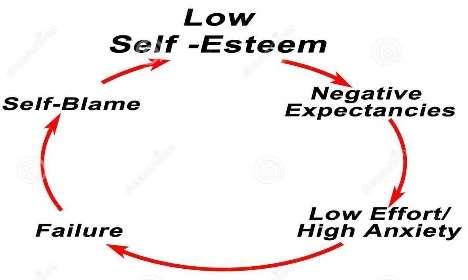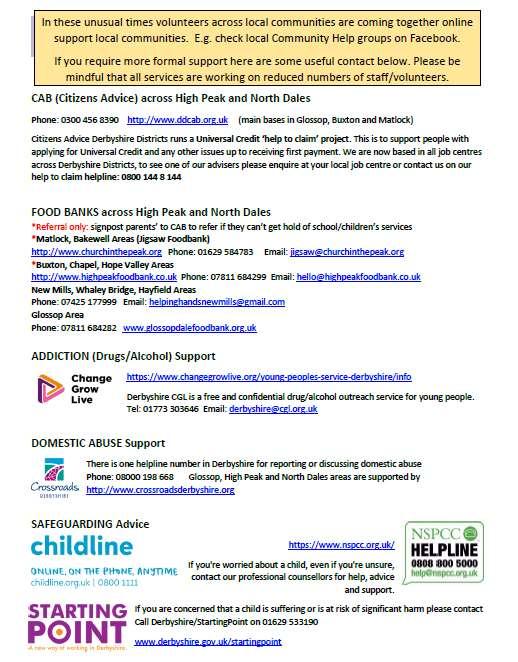
18 minute read
Updates for Parents/Carers
Year 12 Exams
As you are aware, we are continuing with year 12 exams, starting in the week of 18 May and finishing on Friday 5 June.
Advertisement
We are doing this for a few reasons - to keep up momentum and motivation in learning; to help be prepared as best we can for next year; and also because completing the exams in year 12 is often the trigger for moving on in learning to the next parts of the A Level specifications – which we don’t want to delay.
Obviously the process involves a good deal of trust. Full details of how this will work have been issued by email from Mr Flett (and available under student information on page 32) – a summary is given below:
Exam papers will be released on SMHW Morning exams start at 10am Afternoon exams will start at 2.30pm Answers are to be uploaded to SMHW as soon as possible after the end of the exam Students who are allocated extra time need to indicate what is done during extra time by either writing it in purple pen (if handwritten) or in bold (if typing)
Any queries or problems should be directed to Mr Flett before the exam week starts.
Parents/carers
It would be great to have your help, where you can, with this process.
1. Know the timetable for the exams (issued via email). 2. Understand the instructions we have given to students. 3. Check with students that they know the instructions from individual departments. 4. Enable your son or daughter to have the most quiet and focused space possible in the house for the time of the exam. 5. Checking with students that they have done the preparation outlined above. 6. If you feel appropriate, to help them feel settled in terms of printing papers off, knowing their start and finish times, and knowing they are OK in uploading the finished product.
We want students to take these exams seriously for their own good, but no one is going to get into trouble for technical hiccups – please email the subject teacher if there are any, for the record (be aware that they might struggle to get back to every email individually).
HPV Immunisations for Year 8 Students
The Immunisation Team have been in contact with us and providing students are back in school towards the end of the summer term they will aim to vaccinate year 8 girls and boys with the HPV Human Papilloma Vaccine. If students are not back they will make arrangements to vaccinate early in the new academic year. In order for the team to order the vaccinations they have asked that you ensure your consent is given (if you haven’t already done this). To give your consent:
Please visit http://bit.do/frbf9 or scan (see inset for IPhone and Android’s with the “scan me” app) to complete the consent form.
The option to consent or decline the vaccination is at the end of the questionnaire so please complete even if you do not want your child to have the vaccination.
Your unique school code for Highfields School is DD112950
For more information about the vaccination and the date we are due into your school please visit our website: http://www.derbyshireschoolnurses.org.uk/parents/immunisations
If you experience any problems please call the School Age Immunisation Team.
DCHST.immunisationteam@nhs.net Repton: 01283 707178 Clay Cross: 01246 252953
Launch of the free Speakers for Schools Virtual Work Experience Programme for students
Speakers for Schools is working with almost 150 employers to offer amazing insight days and work experience across the UK. These include Disney, Cisco, Santander, the Bank of England, the NHS, Marie Curie.
Speakers for Schools recognised that more could to be done to provide mind-opening opportunities to young people in communities which struggle to access many of the UK’s leading employers, and so Speakers for Schools committed to delivering a Virtual Work Experience programme (see link below), which would allow young people (aged 14-19) from across the UK to undertake structured, interactive work experience placements with prestigious employers remotely (at school or home). VWEX - https://www.speakersforschools.org/experience-2/vwex/
School and students will be contacted as Virtual Work Experience placements become available. If students would like to access VWEX opportunities please sign up below: https://www.s4snextgen.org/Sign-Up
Uniform for September 2020
We still plan to move ahead with the new uniform for September as this was in place before the closure of school was announced. Trutex Direct and Kick Off Sport were already processing the new clothing and are on track to ensure uniform is available in time for the new academic year.
We will provide parents/carers with the full uniform code and details of how to purchase once we have more detailed information from our suppliers regarding social distancing and trying on uniform. We are looking to help support families who may be struggling financially and will share all details once uniform is ready to purchase.
Orders from Trutex Direct will be through their website as usual. Kick Off Sport are looking more towards an online ordering system and are preparing size guides to help families with measurements. Kick Off have stock ready for when the shop re-opens. There will be a limit of a maximum of two people in the shop at any one time and they are looking at an appointment system for new starters where families need to purchase a significant amount of uniform. Further information will follow as they are awaiting advice from the British Retail Consortium and School Wear Association regarding trying on uniform and fitting room regulations before they can provide school with details
Refunds for cancelled trips - New York
The school has been in touch with Derbyshire County Council in relation to refunds. Due to the current circumstances, the insurance company (AIG) is dealing with a mass influx of claims during this period and they are working through a backlog.
We apologise for the delay and will provide updates when we receive them. Thank you for your patience.
Universal Credit and Free School Meals during the Coronavirus outbreak
If you are a family who have had to apply for Universal Credit for the first time to help you out during these difficult times, please remember to apply for Free School Meals and let us know if you are successful by forwarding your confirmation email to us so we can change your status and add you to the voucher/hamper schemes school is operating.
If you feel you may be eligible for Free School Meals you can contact the Free School Meals team in any of the following ways:
Email: checking@derbyshire.gov.uk Telephone: 01629 536400 / 01629 535743 Families can also apply directly online at: https://www.derbyshire.gov.uk/education/schools/your-child-at-school/meals/school-meals/freeschool-meals.aspx
Duke of Edinburgh Award #DofEWithADifference
We recognise that this is a worrying time and you may be concerned about how the coronavirus outbreak will affect students participating in their Duke of Edinburgh Awards. In order to help you achieve your award there is a lot of information listed below that is updated regularly and includes activity suggestions, expeditions etc: https://www.dofe.org/dofewithadifference.
Temporary programme changes
To ensure that you will be able to continue with your award the following changes are in place Participants can now volunteer for family members, for example by mentoring or coaching younger siblings. Participants can now change section activities more than once. Time spent on previous activities will still count towards completion. Staff members may be able to act as Volunteering, Physical and Skills section Assessors, if required. When expeditions are able to resume, Silver and Gold Expedition Assessors will temporarily be allowed to be known to the expedition group.
To protect the value and integrity of DofE Awards, other requirements will remain the same. However, we are continuing to look for ways we can be flexible to support you, so if you have ideas that are outside of the box let me know. Any further updates or temporary changes introduced will be included in the newsletter, but in the meantime if you need any help please contact Mrs Wildgoose.
Hot off the press
Volunteering:
The world feels a little uncertain at the moment, but remember we’re all in this together and can support each other in new ways. If you’re continuing the Volunteering section for your DofE, or just want to help your community, look at these tips. www.dofe.org/thelatest/volunteer-remotely
Leonard Cheshire have produced a 12 week guide for young people wishing to complete their volunteering from home. Activities include marketing, fundraising, and campaigning to make the world a fairer place for disabled people. https://www.leonardcheshire.org/get-involved/volunteer-us/social-action.
‘Kissing it better’ is a healthcare charity and training provider, working to end the isolation of old age by bringing generations together - see www.Kissingitbetter.co.uk
Remember you can volunteer at home.
Physical:
Are you struggling with your DofE physical section? There is a fantastic selection of fitness ideas which can be done at home on the NHS Fitness studio website: https://www.nhs.uk/conditions/nhsfitness-studio/#DofEwithadifference
Fitness trainer Joe Wicks @thebodycoach runs a daily workout 9.00-9.30am Monday - Friday. Doing a minimum of two of these a week would work for your DofE: https://www.youtube.com/user/thebodycoach1/featured (this has been part of the PE lockdown sessions, they are great!
If you fancy adding some extra at home exercise to your daily routine, Youth Sport Trust are doing daily exercises. Doing these for at least an hour per week can count towards your DofE physical section. www.youthsporttrust.org/pe-home-learning
Skill:
British Sign Language are currently offering students the chance to sign up for an online sign language course for only £3.00. This is a fantastic opportunity to learn sign language from home for at least 3 months. #DofEwithadifference british-sign.co.uk
Daily exercise is important for your physical and mental well-being. Have you seen inspirational scenes when out? Why not try photography with sharp shots photo and create a portfolio for your skill section? (https://twitter.com/sharpshotsphoto). For more info visit - https://bit.ly/2VbI89f #DofEwithadifference
U:bee is a non-profit organisation, helping young people be the best they can be. @UBeeOnline1 is a DofE Approved Activity provider that offers inspirational, affordable, fun online skills and hobbies courses from just £29. Visit – www.ubee.org.uk
If you're looking for a new DofE skill and not a big fan of baking sweet treats, why not try cookery instead? Perhaps you could try Vegetarian or Vegan recipes and create a cook book as you go? https://www.bbcgoodfood.com/
Why not try a new hobby for your DofE skill section, why not try gardening? You can purchase seeds from as little as £1 on Amazon. Research online how to care for them and enjoy the fruits of your labour. http://www.bbc.co.uk/gardening/
Expedition - Getting ahead:
Even though you can’t take part in your expedition at the moment, why not check out these online activities for young navigators from ELOutdoorEd (https://twitter.com/ELOutdoorEd) https://www.edubuzz.org/eloes/2020/03/25/online-activities-for-young-navigators/ A great way to learn #expedition skills. #DofEWithADifference.
Don’t forget if you go onto your EDOFE you can plan your expedition either as a group or individually, planning alone is possible but getting in touch with your team mates makes it more fun and you can share the work and ideas.
o
Bronze - your expedition will start at Chatsworth house SK260702 camping at Barn farm SK 242622 and finishing at Bonsall fountain 279579.
o
Silver – your expedition will start at Charlesworth School SK006928 to Thornsett Westfield House Farm SK013869 to Edale (NOT Field End campsite) finishing at Bamford railway station SK206824 and qualifying Hebden Hey Scout Centre to Skipton - the choice of campsite is yours for both nights. Remember you have to have 7 hours of planned activity but this does not mean 7hrs of walking, your aim/purpose is important and it can reduce your walking time so think carefully about what you might do.
Gold – your expedition will start at Charlesworth Thornsett Edale (see above). Qualifying expedition Yorkshire Dales Starting Ribbleshead Railway Station 762791, your route is dependent on your aim, but remember 8 hrs of planned activity per day (this does not need to be 8hrs walking)
Knowing how, where and when to obtain weather forecasts can be important when training for future expeditions. Learn how to look for signs which will indicate changes in the weather as part of your expedition training at home. https://bit.ly/34QQGpa
Although expeditions are currently on hold, you can still take part in some expedition training from home. Why not learn how to use a trangia stove safely and have a go at cooking a meal on one at home. #DofEWithaDifference www.mountain-water.co.uk/dofe-expedition-training-thetrangia-stove
Stay safe and get in touch if there is anything that you need please contact Mrs Wildgoose.
More top tips on how to support your child with dyslexia and other SEND conditions …
How to Prepare your child for Success in Life
Why do so many dyslexic children have problems in school… …and yet go on to do really well in life?
This article is based on the work of Margaret Malpas MBE who is now a dyslexia specialist but who, in the 1980s, was the mother of a son with dyslexia and ADHD. At this time, very little was known about either condition and her son’s school refused to recognise his learning disabilities in any way. As she puts it, “His school life was very tough indeed”.
Throughout his younger years and young adult life she worried about him so much that she decided to do some research and wrote a book about her findings; ‘Self-fulfilment with Dyslexia: A
Blueprint for Success’
She begins with a parent’s fears about their children and how we tend to concern ourselves with the ‘here and now’. How can we help improve their struggles with reading and their difficulties with spelling and writing? How can we help improve their organisational abilities, their handwriting and their self-confidence? The list goes on. Her main message is:
As parents, you need to know that your child WILL be a success
She talks about all the ‘wasted worry’ over the years, as her son grew up to be a very happy family man, leading a really successful life. And studies indicate that often the transformation from experiencing difficulties at school, to having great success in your life tends to be in a matter of just two to three years. Which is quite staggering.
How can this happen?
This is the question that she set herself.
Her research involved gathering questionnaire evidence from 68 ‘successful’ dyslexic adults, fifteen of which were interviewed in great depth. Questions were asked not only about success factors but also about the challenges they may have had along the way. Their answers were incredibly consistent and from this data, she came up with her ten factors for success.
THE Ten Factors for Success


Determination – Essential – the number 1 trait for ANYONE to be successful, whether they are dyslexic or not Self-Esteem – You don’t need a huge amount of this, but you do need some Passion – having a passion about a hobby, a skill, a sport… Niche – finding a niche, particularly with employment Atypical Problem Solving – this is often considered a strength of dyslexics
Creativity Empathy Verbal influencing Having good coping strategies

Having support from others – this is critically important. For example, it can be a parent, a teacher or a mentor at work
56% of her group identified determination as the number one factor for success.
Only 9% of her group found their education experience effective. Thank goodness the education system is now much more enlightened.
72% of interviewees said that their dyslexia gave them certain strengths such as, seeing the big picture, seeing data patterns, having a strong sense of empathy and developing effective coping strategies. In a future article we will look at dyslexia as a ‘Super Power’.
Let’s look at these success factors in more detail:
1. Determination – Learning to be literate is much tougher for dyslexic children who may well have to work harder than their peers. The key is to work out what motivates you to keep going. Is it competition, a reward, sheer stubbornness? The sooner children learn to understand themselves and manage themselves, the better.
TOP TIP
If your child has a hobby, don’t let them drop it at the first sign of being less keen. Teach them that when you take something on, you see it through to the end e.g. complete a series of lessons.
2. Self-Esteem - Most dyslexic children have a problem with their self-esteem. Perhaps they don’t understand why they can’t read as well as others and once you are in a negative mind-set, you will tend to blame everything around you as being your fault, even when it is not. So, you can increase self-esteem through successes.

TOP TIP
Find areas that your child is really good at and encourage this – sport, dance, art, drama, cooking, making things, mending things, nature… Teach your child the following thinking process: When something goes wrong, what was it due to? Was it something they did? Partly something they did? Something somebody else did and they had no part in it, or just chance, nobody did anything but it happened anyway.
This will help protect them from developing low self-esteem.
3. Having a Passion – In the research, most said that having a passion led them to work really hard to learn to read. They remained determined about it. For example, many teenage boys say they learned to read by persisting with technical manuals such as IT manuals, motorbike and car magazines etc.
TOP TIP
Try books published by Barrington Stoke – these are written specifically for dyslexics (adults and children) and are varied, exciting and age appropriate.
4. Finding your niche
TOP TIP
Work experience is really important as school and work environments can be very different. Encourage your child to get a job on a Saturday or in the holidays.
Identify good customer care and add it into chat with your child. When they go to work themselves, they can draw on the experiences of what doing a good job looks like. If someone goes out of their way to be helpful, positive, enthusiastic and encourages team spirit – they will be worth their weight in gold to an employer!
Research by McNulty (2002) following apprentices and young adults found, “Finding your niche employment where strengths are more important than weaknesses is transformational for young people”.
5. Atypical Problem Solving & 6. Creativity
TOP TIP
These two skills are often quoted as strengths conferred by dyslexia but research to prove this is difficult to find. Cultivating ideas and being creative is a process which seems to have three possible variants: simply combining things we knew already bringing things we know together but seeing them in a new relationship to each other (e.g., when cooking, using what’s in the cupboard when we don’t have all the ingredients for a particular meal) learning something completely new to us and connecting that with what we already knew
Encourage ALL forms of creativity at home – art, sewing, making things, engineering projects, mending things, music… The likelihood is that they will be good at this and so will raise selfesteem.
Play games that encourage problem solving or creativity as a family e.g, Pictionary, Charades
Producing ideas involves divergent thinking – collecting information, manipulating the information, producing something new and evaluating the ideas – this is a skill that can be developed easily but studies suggest that the dyslexic brain is particularly good at it.
7.
Empathy – This was identified by 23% of the research group as being a key factor of their success, especially in the workplace.
8.
Verbal Skills – When you can’t rely on your written communications, you tend to hone your verbal skills. Dyslexic people are often excellent influencers and great storytellers – Benjamin Zephaniah springs to mind.
TOP TIP
Play ‘What happened next’ games which can also encourage empathy if using pictures.
9. Coping Strategies – It is essential for success that coping strategies are well embedded. There is no doubt that dyslexia can cause difficulties that don’t go away in life. We have to use our strengths, are determination and our passions to push through failures and to keep on going.
TOP TIP
Use assistive technology wherever possible. Ensure that your child learns to touch type – BBC Dance Mat Typing is online and FREE.
10. Support from Parents is completely irreplaceable!
You will act as their supporter and advocate. In the research carried out a supportive parent / teacher / carer was essential for success in all of the adults taking part in the study.
SUCCESS doesn’t just happen …
Research shows us that success takes: Hard work Revision Failure Knowledge Persistence

I’m going to finish with Margaret’s words:
Self Fulfillment with Dyslexia: A Blueprint for Success by Margaret D Malpas MBE available as an ebook (£7.47) and in paperback available from the British Dyslexia Association (BDA) shop £12.99.
Next time… ‘It’s great to be dyslexic’
See you next week.
Mrs Finney SEND Teaching and Learning Coordinator & Specialist Teacher








